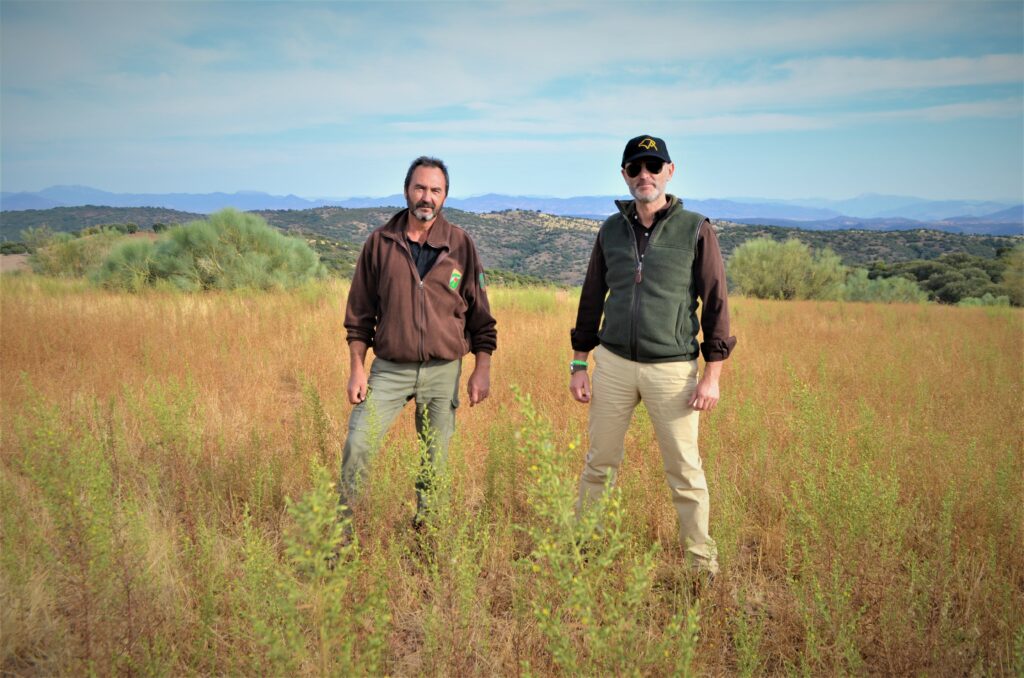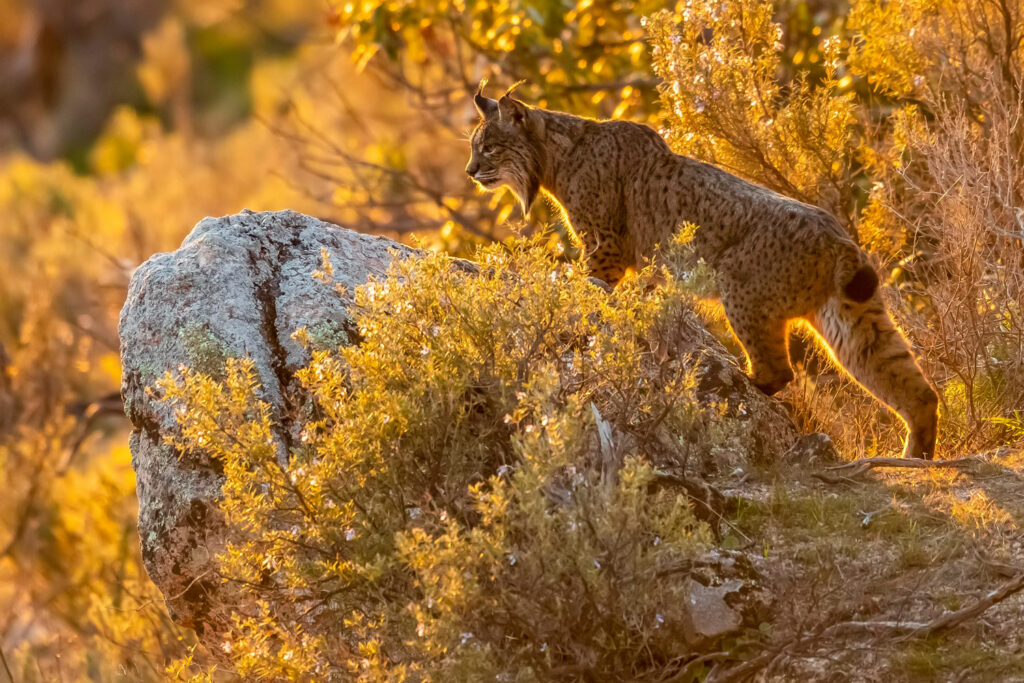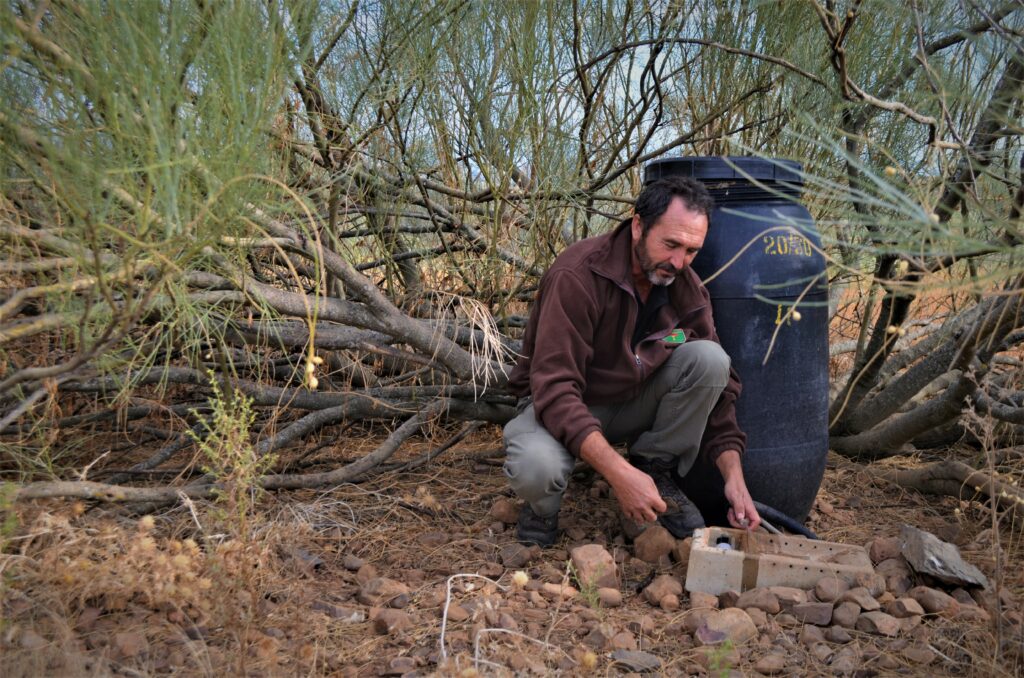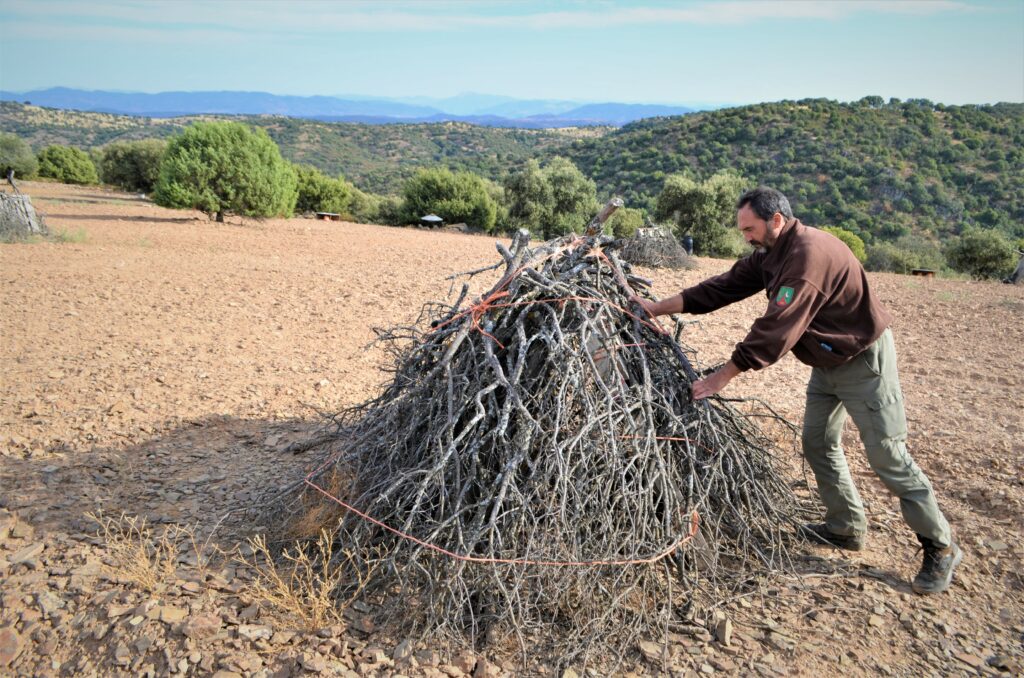Jesús Muelas runs a large reared partridge shoot in Spain, funding the transition to wildlife-friendly farming and providing vital habitat for endangered predators

Finca La Cuesta is a 42,000-acre released red-legged partridge shoot near Puebla del Príncipe in Castilla-La Mancha, a region of central Spain famous for its vineyards, windmills and Manchego cheese. The land, 80% of which is leased by the shoot is a mostly rugged, hilly landscape with some arable farming.
Estate facts
- Location: Puebla del Príncipe, Castilla-La Mancha
- Type of landscape: Hilly, rugged, scrub with some arable fields
- Acreage: 42,000 acres
- Conservation measures: Crop rotations, harvest management, grass margins, game cover crops, beetle banks, tree planting, supplementary feeding, water provision, predator control
La Cuesta is boosting biodiversity on several fronts. Many of the measures and farming operations adopted to suit the partridges mitigate the damaging impact of modern agriculture. Shoot manager and conservationist Jesús Muelas explained: “In an effort to make farming profitable, techniques are used that are not always compatible with biodiversity. Here the opposite is true: farming revolves around the partridges, including when and what to sow and when and how to harvest. By creating habitat round the edges through field margins, planting native shrubs in scrubland and trees between arable fields, we keep a balance between food production and biodiversity. Because of this, you could argue 90% of the land is managed with conservation in mind.”
Other measures beneficial to a range of wildlife include large areas of game crops sown every year to give the partridges food and shelter, grain distributed via feeders, and water, which is increasingly important as climate heating impacts on this arid part of Spain. Importantly, drinkers and feeders are kept topped up after the shooting season (which lasts from 1 October to February 28), providing year-round sustenance for songbirds as well as the partridges left on the ground. When provided over such a large area, the impact on biodiversity is greater than that made by smaller shooting operations. Jesús said: “Owing to the higher numbers of partridges, we have to make a bigger effort compared to other shoots. For example, we have a higher density of feeders and water drinkers and we provide natural food all year round through game crops, which we think is key. On the neighbouring estates, the game management is not at this level.”

Another impact of large-scale releasing at La Cuesta is the availability of food and habitat for rare apex predators including golden, imperial and booted eagles; eagle owls; and the globally critically endangered Iberian lynx. The volume of game on the ground means the shoot can afford to lose some partridges and rabbits to birds of prey and big cats. Jesús said: “We have around 40 protected pairs of raptors, which we know could be consuming thousands of partridges and rabbits a year, which is not a problem for us and we accept that. As well as prey and habitat, we provide something crucial, which sometimes is overlooked: freedom from disturbance. We are not alone in this. The majority of commercial red-leg shooting estates in Spain are supporting protected predators such as eagles and lynxes.”
The majority of shooting estates are supporting protected predators
Jesús Muelas
The relationship between gamekeepers and predators like the lynx has changed. Whereas decades ago they used to be regarded as a threat to livelihoods, they are now largely tolerated and recognised as a useful check on smaller predators, in particular foxes. Jesús acknowledges that instances of illegal killing of protected species still occur, but feels the situation is far better than it was. He said: “As a shoot, we are much more self-critical and rigorous with the legal predator control methods used. Things have changed – years ago the big predators were enemies and now we are very proud of them. They have become a hallmark of good shoot management and a healthy countryside.”
Legal predation management is another key part of the conservation work carried out on the estate, benefitting wild songbirds as well as partridges. Wild boar numbers are regulated through shooting and magpies are controlled with Larsen traps during the breeding season when songbirds are most vulnerable. A team of 12 gamekeepers employed by the shoot means generalist predators can be controlled over a wide area. Jesús said: “Fox and corvid control benefits many species, but to have a real impact you need to have a team of professional gamekeepers and maintain a consistent effort lasting years.”

It is hard to make a living from agriculture in this part of Spain, and farmers could not afford to implement conservation measures without a combination of investment by the shoot and CAP grants. As well as supporting farming, large-scale shooting operations provide a lifeline to the wider local economy and community through the people they employ and by their clients spending money within the hospitality and tourist industries.
Jesús said: “In total, 34 people are employed full-time throughout the year by the shoot. From 15 August, ten more people join the team to support the management and, from 1 October, when the hunting season begins, every day we are paying 90-120 people, who are based in the surrounding villages. For the local economy, I think it is one of the highest revenues, both directly and indirectly. In Puebla del Príncipe, when the hunting season begins, economic activity multiplies in bars, restaurants and hotels.”

Jesús sees the main threat to shooting’s economic contribution and conservation success as increasingly restrictive legislation, especially around predation management, and he believes a complete ban on gamebird releasing would be disastrous. He said: “If the authorities put obstacles in the way of effective management, something is very wrong. For example, in other regions of Spain they have restricted the use of snaring, which when done properly is a very humane way of trapping foxes. Without predator control, we would be unable to provide shoot days or protect wild game. You need consistency. If you ban a management tool one year and allow it the next, it could take years for wildlife to recover. If releasing were banned completely, the conservation that goes with it would disappear and local small businesses would be seriously damaged. It would be a backwards step for biodiversity, culture and economy.”
The politicians should listen to those who have dust on their boots
Jesús Muelas
Jesús believes biodiversity loss could be reversed if government ministers and agencies talked to the land managers on the ground working for wildlife and supported their conservation efforts. “It would help if politicians got a good view of ‘real life’ from time to time,” he says. “When they have an important decision to make, they should listen to those who have dust on their boots. The authorities have good technical advisors and the best approach would be for them to work ‘hand in hand’ with game managers and be more flexible. It is key to build trust between those making decisions and those working in the field.”
Looking ahead, Jesús would like the contribution made to conservation by commercial shoot management to be better acknowledged. He said: “I am very lucky, because this doesn’t feel like a job for me. It is a privilege to be able to work for what I love, hunting and nature. What motivates me is that, if we did not do what we do, you would not see partridges, lynx, or any of the other precious wildlife we care for.”
